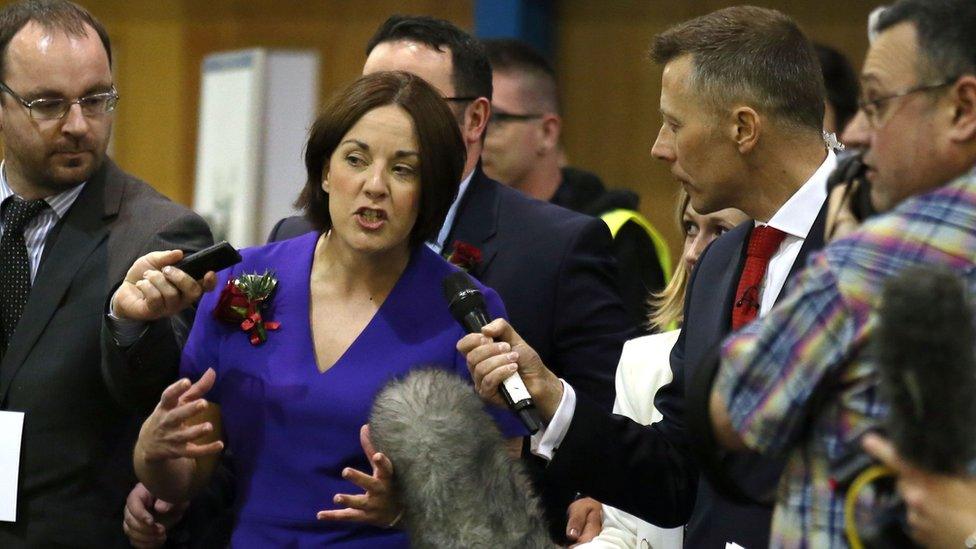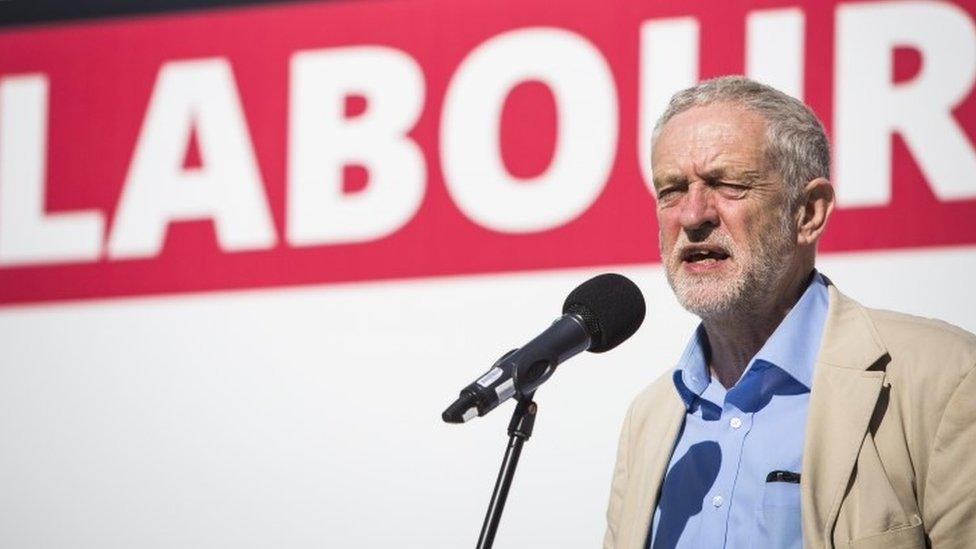Holyrood 2016: Labour - the morning after the night before
- Published

Kezia Dugdale vowed to stay on as Scottish Labour leader
It never feels good for any politician to wake up the morning after an election defeat.
Today it's hard to imagine many senior Labour figures got much sleep at all last night.
No doubt lying awake contemplating their humiliating defeat by the Tories who knocked them decisively into third place.
But also having to ask deeper existential questions about whether there is still a place for the Labour party in the Scottish political landscape.
Labour can spend the next few days and weeks asking if it was their polices that voters didn't like.
Was it a mistake to offer to raise income tax for almost every taxpayer in Scotland? Was it their young and inexperienced leader who has only been in the job nine short months? Was Jeremy Corbyn's leadership a factor?
But arguments over their manifesto or personalities are to miss the point. This election was clearly about the constitution.
Independence question
Scottish politics are still totally dominated by the independence question which was certainly not settled on 18 September 2014 and still seems to take precedence in voters' minds over any other issue. And it's an issue on which Labour cannot win.
"We have to get our story straight on where we stand on independence", is what very depressed Labour figures were telling me on Thursday night. But they had different ideas about what that story should be.
Labour can never form another government in Holyrood or win back many of their Westminster seats unless they appeal to former Labour voters who have now decided they favour an independent Scotland and are currently voting SNP.
But what we learned last night was that if Labour don't take a hard line on their support for the union they haemorrhage votes to the Tories.

Scottish Labour leaders may ask themselves whether Jeremy Corbyn's leadership was a factor in the Holyrood election result
Labour tried to reach out to Yes voters by saying that if there was another referendum Labour politicians would be free to campaign on either side.
Kezia Dugdale even suggested in one interview that she might consider voting for independence in the event of a Brexit but then tried to row back from that - whilst also saying that she resolutely opposed the idea of having another referendum and would vigorously campaign for a no vote if there was to be another indyref.
That left space for the Tories to proclaim themselves the only true party of the Union.
They accused Labour of being soft on independence and it seems to have worked. The roughly 10% of voters the Tories seem to have grabbed from Labour are largely unionists who wanted to express their opposition to independence at the ballot box once more.
So where does that leave Labour? If the SNP are the party of independence and the Tories the party of the union, what is the point of the Labour Party? They will continue to argue that they care most about social justice and poverty. But as long as voters remain split over the constitution that may not win back many voters.
One small consolation for Scottish labour leader Kezia Dugdale - it seems unlikely she will face a leadership challenge even despite this terrible result.
Why? Partly because Labour have finally realised changing leaders every time they lose an election hasn't helped.
But mostly because no-one wants the job of Scottish labour leader right now. And who can blame them?